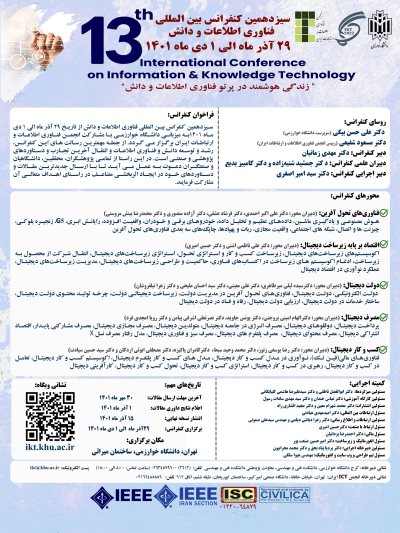0% Complete

نویسندگان :
کلمات کلیدی :
چکیده :
لیست مقالات بایگانی شده
Dr Mahila Dadfarnia - Ali Alemi Matinpour - Dr Monireh Abdoos
مریم نصراصفهانی - بهروز ترک لادانی - بهروز شاهقلی قهفرخی - حسین قجاوند بلتیجه - نوید شیرمحمدی - مهدی شمس - محمدامین آقاکبیری
Mahtab Vaezi - Mehdi Nasri - Farhad Azimifar - Mahdi Mosleh
Alireza Khabbazan - Dr Ahmad Ali Abin
سیده فاطمه نورانی - سحر مقراضی
سید احسان ملیحی - فاطمه مشایخی کردکلا
Mohammad Hadi Safari Nader
محیا دشتیانه - رضا قاسمی یقین






